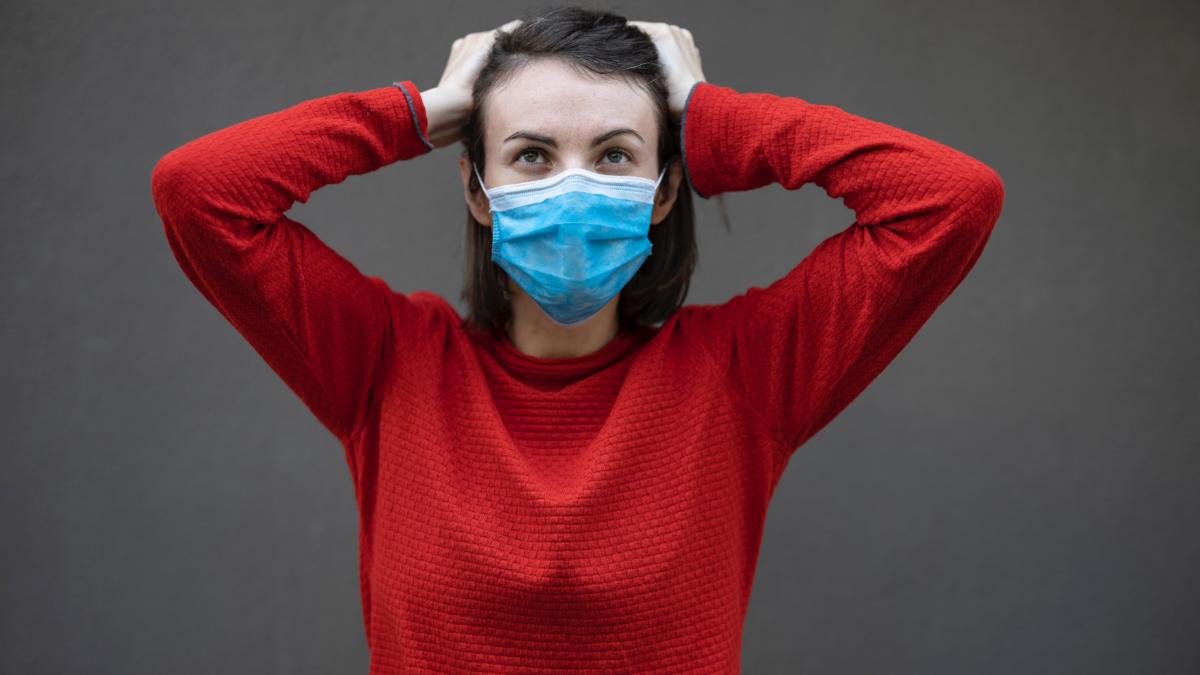The final 10 months of 2020 and the first three months of 2021: That time, like a loved one’s death or a worst-ever sexual experience, is something you’d like to blot from memory.
That won’t happen soon.
Some recall the minute their boss instructed them to shutter production – a day’s menu, a staged event, a construction job – go home, and start distancing. Some, fast at work on recovery, won’t discuss the last 12 months, glossing over the mess with eyes toward the future.
No matter. The last 12 months, with its March 16 D-Day start, changed every game in town.
While recovery is predicted with relief funds to go with vaccinations, we wanted to see what was lost during these 12 months, losses that might never be recovered, with a mix of public policy and personal recollection. Here is a sampling of stories on how COVID has affected various Philadelphians in a year’s time, many in their own words.
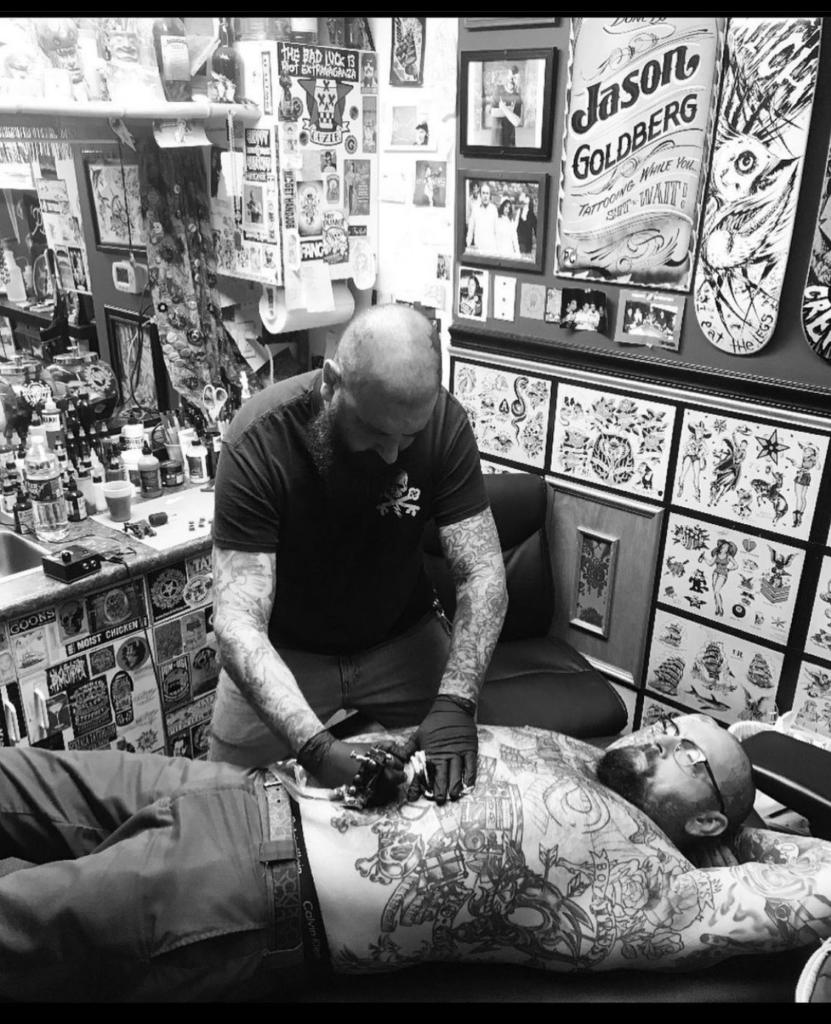
Jason Goldberg
Along with owning Olde City Tattoo, Goldberg is partnered in Baker Street Tattoo in Media and Raw Power Tattoo in Northeast Philly.
When March 16 hit, in addition to stopping business without knowing when tattoo places would again be considered safe, Goldberg maintained a staff of 22, while paying four rents, including his wife’s then-unable-to-open Heavy Metal Hair Salon, without income. He applied for PPPs, but was denied, as he, and his staff, are self-employed.
Along with being a member of the band Bad Luck 13 and losing gigs, Goldberg, together with the Philly music scene, lost a best friend: One-time Gunners Run partner and local impresario Bryan Dilworth.
“This week, a year-ago, we lost Dilworth, Bad Luck 13 played a last gig at Voltage, and our shops closed with no reopening date,” said Goldberg.
Everything fell apart, fast.
– Jason Goldberg
“Everything fell apart, fast.”
After COVID-19 week one, he discovered that all tattoo conventions would disappear. “A year’s worth, over 10 events, from Philly’s tattoo convention to every event across the country. It’s an out-of-control scene by this point with a convention every weekend, but they’re fun and they make money.”
The Goldbergs had to cancel a “huge wedding in Vegas” at the start of the pandemic.
During downtime, Goldberg built out his wife’s salon, “with no stress…and many morning hangouts at Home Depot,” as well as starting a new band, The Cripplers. After three months passed, his tat-rooms could reopen with safety precautions and associated costs, yet, in a less-than-optimal scenario.
“Because our shops are small and can’t fit much staff, I had to cut everybody’s hours in half when we got back – we still can’t be fully staffed. Tattooing in Old City is like two different businesses: Daytime with tourist traffic and nighttime with bars. Now, the bars are still gone – they close early, so there’s no point in us staying open.”
The lasting effect of Goldberg’s COVID year?
“We’re [usually] on top of each other in the shop, so we have to make sure we’re not. The bustle of the street is there, now, as most dining is still outdoors – which should be a good thing – but people are afraid of Old City’s parking situation and still leery of tight spaces, like ours. Remember, though, a lot of people in the restaurant service industry get tattoos. As soon as restaurants and bars come back, business should pick up. Plus, the last time stimulus checks came through, people spent on tattoos. That’s promising.”
Tom Vecchione
Ever since his father opened Gem Cleaners in 1938 and moved it to West Mt. Airy in 1954, Vecchione has run a specialized dry cleaning business for high-end clothing and customers focusing on designer and couture wear, as well as wedding gowns and the like.
“I do all of the work myself. Clean every piece myself. Hand iron every piece myself,” Vecchione said.
On the plus side, since the start of the pandemic, Gem’s been an essential business “We’re one of the few people who can kill germs,” he says.
The stay-at-home order killed dry cleaners.
– Tom Vecchione
The downside? Designer clothing sales for men and women plummeted, as did the need to wear them.
“The stay-at-home order killed dry cleaners,” he said.
“Gem’s last quarter was our worst – down 44 percent. We were OK through April – thank God for PPP money – and summers – my clients go away. 2020, though, they didn’t go. They stayed indoors, or went away and didn’t come back. Many Center City clients with properties down the Shore left between the riots and the pandemic. Customers who left for Florida in the winter didn’t come back. The fact that no one could go out to dinner and dress up killed us. Plus, men and women not going to work? Ugh. Dry cleaning is down 70 percent from last year with a prediction that 30 percent of existing dry cleaners will go out of business. I normally do about $30,000 to $32,000 gross in February. This year it was $14,000. Not good. A dry cleaning buddy of mine in Delaware who used to do 225 to 250 shirts is down to 20 to 25 shirts a day. If they got $3 a shirt, which is a lot, that’s 75 lousy dollars. Doesn’t even pay to open your door.”
Optimistically, Vecchione set up a classroom for children of his employees in Gem’s dressing room.
“I hired a retired teacher friend for a kindergarten-age child, a third-grader, a sixth-grader and high schoolers,” he said, while noting that restaurants should come back strong, with weddings and events restarting.
“Employers will push employees to get back to the office. There’s no way they’re getting work done from their homes, watching TV, eating big lunches. Plus, I’m encouraging people to dry clean comforters, furniture covers and rugs. If you’re going to be home with your kids all day not going to school, your floors are going to be filthy. And sad to say, if 30 percent of dry cleaners are closing, those customers are going to have to come somewhere.”
Jeff Guaracino
The Visit Philadelphia CEO-president, this city’s tourism bureau, ushered in grim projected numbers (March-December 2020) for how the pandemic impacted his industry with a prediction that it will take until 2023-2024 to fully recover from the impacts of COVID-19.
- Lost Travel & Tourism Jobs (Region): 52,000 (down from 192,000 to 140,000), a 27 percent decline year over year
- Lost Leisure Hotel Room Nights (Center City): 696,000, a 74 percent decline year over year
- Lost Group Room Nights (Center City): 950,000, a 93 percent decline year over year
- Lost Business Room Nights (Center City): 787,000, a 80 percent decline year over year
- Lost Travel from Canada & Mexico (Region): 424,000 visits, a 73 percent decline year over year
- Lost Overseas Travel (Region): 562,000 visits, a 80 percent decline year over year
- Lost Economic Impact (Region): $5.8 billion.
“In 2019, we set records for Greater Philadelphia’s tourism industry,” said Guaracino. “Our five-county region welcomed 46 million visitors…marking the 10th consecutive year of growth, while securing records in visitor spending ($7.64 billion) and visitor-supported jobs (105,460). Then came COVID-19. What we never lost – not even in the global pandemic’s darkest days – was hope, optimism. Visitors will come back, but we must compete for their time and travel budgets. Personally, I missed the activity I love most. Through 2021, I’m committing to being a tourist in my own hometown region and planning at least 10 driving trips through Pennsylvania.”
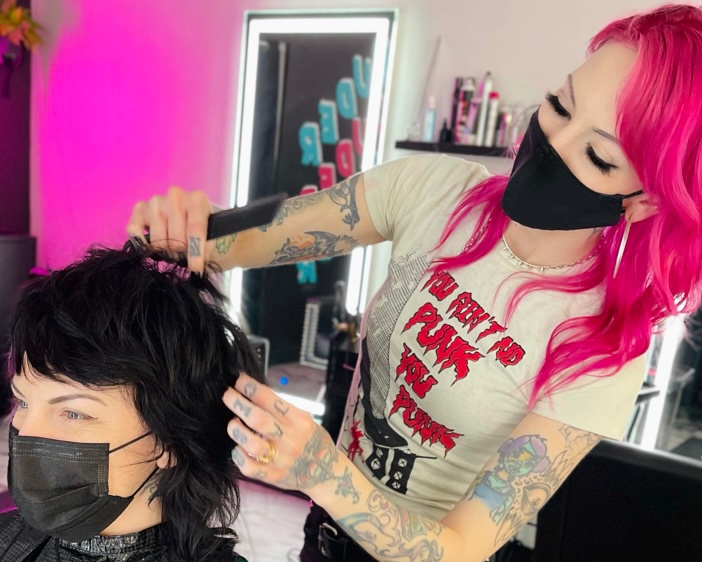
Brittany Goldberg
After 15 years of cutting and coloring hair at local tonsorial spots, Goldberg was ready for her own: East Passyunk Avenue’s Heavy Metal Hair Salon. Until she wasn’t, considering that she signed her lease…
“March 1, then everything shut down,” she said, laughing.
“A real smack in the face. Was I ever going to open? My goal was to get in and re-do the space, then open in May, but everything was difficult: From finding out official words to getting hair color and equipment shipped from overseas. Plus, I got nothing in PPP money. That was scary.”
Heavy Metal Hair Salon’s rocky start was smoothed by the state overseeing new businesses, but nothing was perfect. Goldberg’s vision for HMHS was for four stations, which she was able to distance, six feet apart, from the start. But with shampoo bowls added into the equation, her salon was at capacity with zero room beyond that.
Maybe that’s a blessing in disguise as I’m not killing myself.
– Brittany Goldberg
“I wanted a place where people could come hang in a decked-out waiting area, drink beer, listen to metal and just bullshit while getting their hair done,” she said.
“I planned to bring my ‘80s metal magazines for people to look through while their color processed, and a record player with my favorite vinyl. Unfortunately, I’m not able to have magazines, refreshments, or extra people in the salon, while we’re still dealing with capacity regulations.”
Goldberg is also not allowed, as yet, to double book, take a haircut while another customer’s color is processing.
“Maybe that’s a blessing in disguise as I’m not killing myself.”
Finally, Goldberg opened her salon June 26, 2020. With her knowledge of busy hair seasons, she knows that Heavy Metal Hair Salon missed out on back-to-school, wedding and the October-to-December holidays.
“That was weird, though. I will say that after the holidays, things picked up. Perhaps, there’s a new normal for us. Everyone is getting ready to look good again.”

Chill Moody
Along with being Philly’s most active rapper, producer and entrepreneur, Chill Moody owns a lifestyle brand, nicethings, under which exists a record label/live events company (nicethingsMUSIC), a line of beverages (nicethingsBEER, nicethingsKOMBUCHA), a clothing line and a consulting firm.
Last March 16, he was set to continue a tour with &More (Chill and vocalist Donn T) after the duo played 70 sold-out shows in 2019. His interactive Girls.Like.nicethings Jam Session/Art Exhibit was set to make its SXSW debut, Moody had a fermented fruit beverage dropping last spring, and a new beer launch in July, corresponding with a handful of nicethingsMUSIC activations at Wawa Welcome America. All of this activity was to lead to a new album release in Autumn 2020, accompanied by a new clothing line.
Once SXSW was canceled, I knew COVID was real, and that everything was going to change.
– Chill Moody
None of it came to pass.
“Once SXSW was canceled, I knew COVID was real, and that everything was going to change,” said Moody.
“That was the first domino. The tour was cancelled, then the touring agent got fired, then the touring agency shut down. The fermented fruit beverage I’m working on with a local winery was halted. Welcome America went virtual, and bars and live events shut down, so we shelved the beer release. I decided to split the album up and release new music weekly (#MoodyMonday) while working on another new album.”
Many of Moody’s earnings were projected, so it’s hard to tag with a number, save to say that 2020 was set to be, potentially, his greatest year financially.
“We bounced back and found new ways to bring in income, but nothing was the way we planned. I took a hit. My team took a hit. I’m most affected by not releasing this new line of nicethingsBEER when we planned to. Even though it’s still going to happen, and quite honestly even bigger at this point, I still was most salty about that.”
Kevin Lessard
Philly’s Department of Commerce currently has multiple plans for economic re-growth – from Small Business Relief Funds with 66 percent of grants going to minority-owned businesses, to restaurant and gym relief programs. Lessard, the commerce department’s communications director, was quick to note, though, that before recovery, there is loss with which to contend – and pay for.
“According to the Bureau of Labor Statistics, Philadelphia had a total of 753,500 jobs in February 2020,” he said.
Unemployment among Philadelphia residents has also risen considerably during this time – from 15,585 people at the start of March 2020 to 44,744 people as of the end of February 2021.
– Kevin Lessard
“By April 2020, during the height of the business activity restrictions to stop the spread of COVID-19, that number declined to 651,200.”
Lessard went on to say that total jobs in Philly rose to 691,000 by December 2020 (the most recent month for which data are available), a number which still puts the city at a net loss of 62,500 jobs since the start of the pandemic. Total unemployment claims reached their peak the first week of May 2020, with 156,226 total claims by Philadelphia residents.
“Unemployment among Philadelphia residents has also risen considerably during this time – from 15,585 people at the start of March 2020 to 44,744 people as of the end of February 2021,” Lessard said before slamming home his main point: That the pandemic had a devastating impact on the city’s budget. With tax revenues trickling in at a snail’s pace, it created new costs and increased the costs of services that the city already provided.
“The city closed a pandemic-created $750 million deficit in FY21 and projected a deficit as large as $450 million in FY22,” he said.
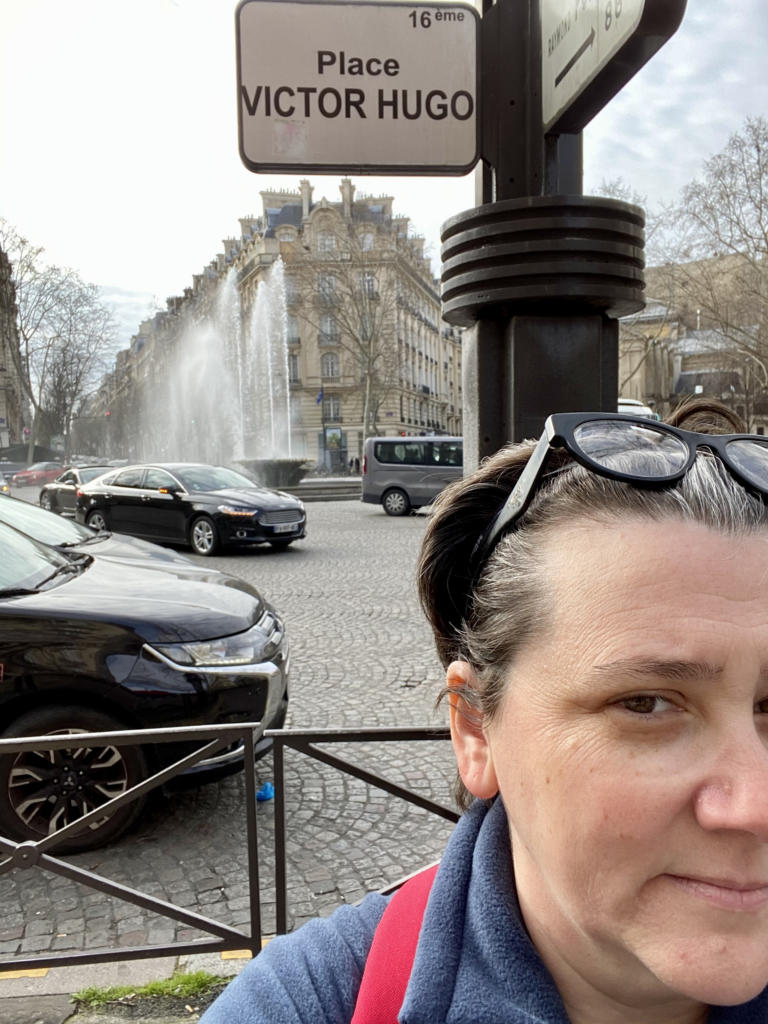
Jacqueline Goldfinger
Goldfinger isn’t just Philadelphia’s most produced playwright; she’s Philly’s most produced playwright across the globe.
Last March 16, she had six productions of her BABEL lined-up around the country with two more “almost in contract.” She was in rehearsal for a world premiere at John F. Kennedy Center for the Performing Arts in Washington, D.C., and another at Ithica’s Hangar Theatre. That doesn’t include Goldfinger’s older work, constantly optioned through publishers and paying royalties, or theaters hiring Goldfinger to teach playwriting workshops in conjunction with the staging of new works.
“All of 2020 went up in smoke with the exception of two productions of BABEL staged in January and February before shutdown,” she said.
Considering she was in Paris working on a new opera libretto, Goldfinger’s first order of business, on March 16, was to get home to her Philly family.
“I kept trying to change plane tickets, but the airports kept opening and closing, and switching flight times by the hour, so I couldn’t figure how to get home. Eventually, I found a flight, so I took an early morning train from Paris to Brussels, then spent six exhausting hours dragging my luggage around…
Most artists were not that lucky. That said, my business is gone. There’s nothing left.
– Jacqueline Goldfinger
“Once I was safely home in Philly, cancellations rolled in. I lost $20,000 in work within 72 hours, and I only earn about $25,000 a year as an independent artist. I was desolate. What kept me from crawling into bed and pulling the covers up over my head was my kids and my community. My younger children left elementary school one day, and then weren’t allowed back, and didn’t know when they’d see their friends and teachers again which left them incredibly confused and upset. My older daughter was graduating from Temple University and her ceremony was abruptly cancelled. I shifted my focus to them as I watched my entire artistic year disintegrate, to maintain perspective.”
Goldfinger hinted that most artists lost at least two-thirds, if not more, of their income during COVID-19. Even those who teach and have artistic-related jobs don’t make enough to sustain, especially considering that the rescue nets provided for them are teensy, if not non-existent. Goldfinger shouts out the Independence Foundation, Sloan Foundation, People’s Light and Theatre Company and Theatre Philadelphia for work-based hand-outs and leg-ups.
“I was lucky to pivot to something connected with my passion,” she said of a downtime writing “Playwriting with Purpose: A Guide and Workbook for New Playwrights” (out this August).
“Most artists were not that lucky. That said, my business is gone. There’s nothing left. There’s been no live performance for a year and we won’t see full slates from most theaters until 2022. That’s two years without work. Rebuilding seems a Herculean task, but it’s one I know all theater artists and companies are facing.”
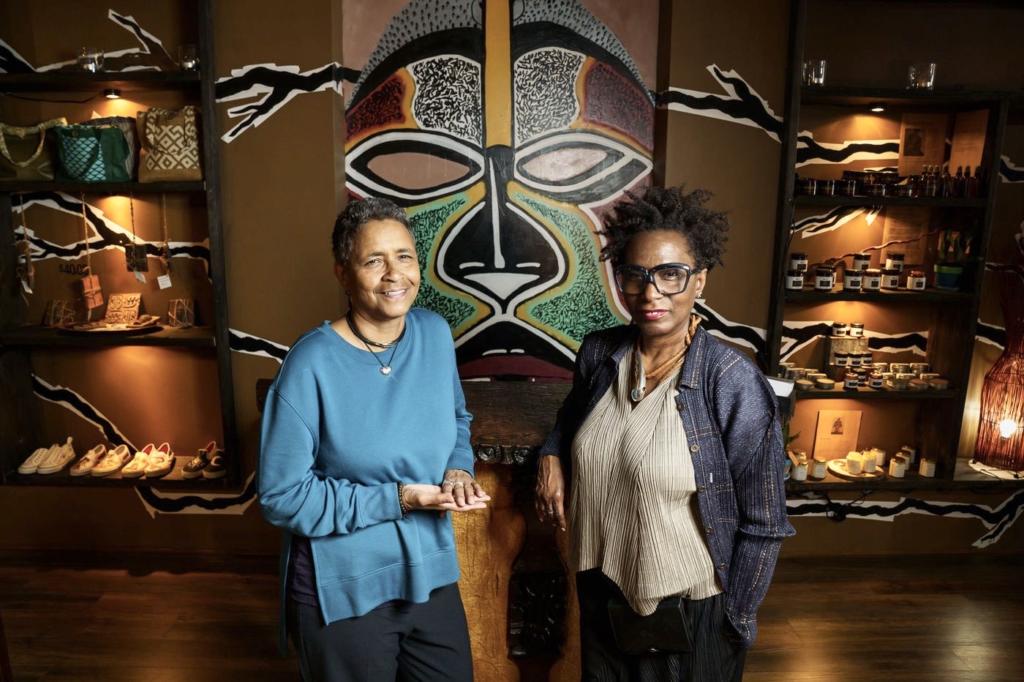
Dorothea Gamble
Gamble, along with her partner Dagmar Mitchell, co-own Trunc on N. 2nd Street – the only Black makers arts, crafts, clothing and gift store in Philly, as well as being Black-owned, lesbian-owned, woman-owned and veteran-owned.
After what Gamble describes as a “spectacular Black History Month 2020 worth of sales,” after one year of opening, Trunc’s owners had big plans for the remainder of the year. They were set to sell drinks – teas and handmade honey from local farms – through a beverage bar made for the back of the shop. This would complete Gamble’s vision of Trunc becoming a lifestyle destination.
“We do events very well and this would have been a level up from our events. Almost like having an event daily; tea tastings, high tea and events on how to make tea.”
They planned art exhibits through summer and were set to introduce actual flowers as a theme on clothing, hats and shoes, as well as candles, apothecary and the like.
“We were aware of a virus going around, but it didn’t seem as serious as it turned out,” said Gamble.
As a result of that, we depleted all of our savings.
–Dorothea Gamble
“March 17 rolled around and the city closed everyone down for 30 days. At the time, we didn’t have a website, so we couldn’t sell at all. It was a scary time. We had to determine how we would handle opening the shop to the public safely. That cost money.”
One month turned to three. Their inventory (e.g. tea) had good shelf life, but they couldn’t progress with their beverage bar.
“Because of the huge loss caused by COVID, we don’t know when it will happen. The money we had saved was used to pay bills to survive COVID. We had commissioned an artist to do the flower clothing and had to cancel that. So he missed out on that income. We had the wire flowers in our inventory and had to sit on that inventory until we created our site.”
The partners did create a website during April and May (“which cost money we didn’t want or have to spend”) until the city allowed Trunc to open, with hand sanitizer, disposable masks, and safe-distanced shelving. They held events on the sidewalk and in the shop’s window.
“We were at 35 percent of our year in February 2020. Our plan was to double 2019 by the end of summer and gain another 25 percent during the fourth quarter,” Gamble said. “That didn’t happen.”
They also didn’t receive grant money (until 2021) as Trunc is a small company.
“As a result of that, we depleted all of our savings.”
To get through 2021, Trunc must think outside-the-box.
“2020 was a learning experience for future growth. If you’re a retailer, understand your customer and focus stock on them. Eliminate products that don’t enhance your shop or add value. Always be aware of what’s going on in the market, pandemic and beyond.”
